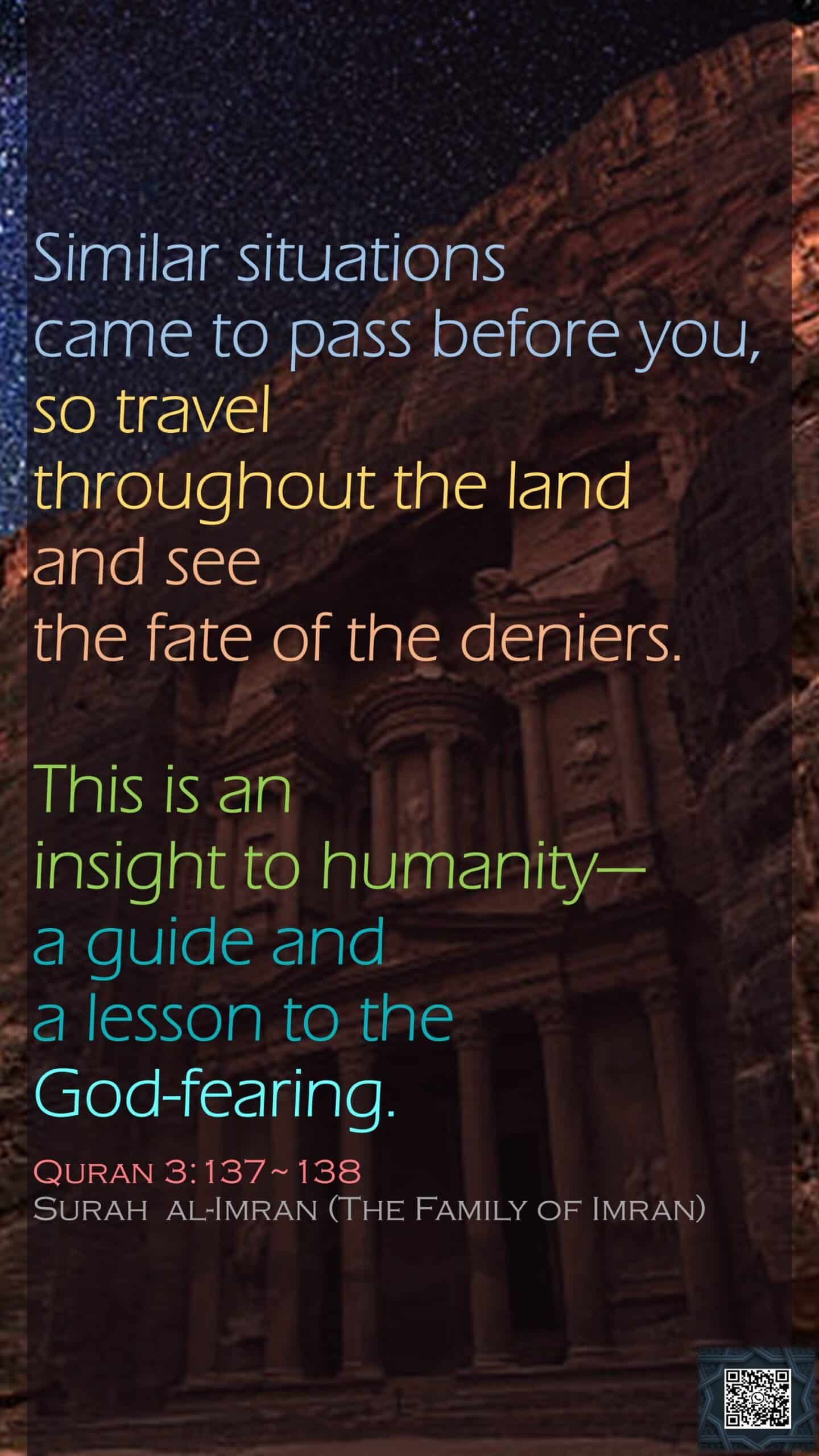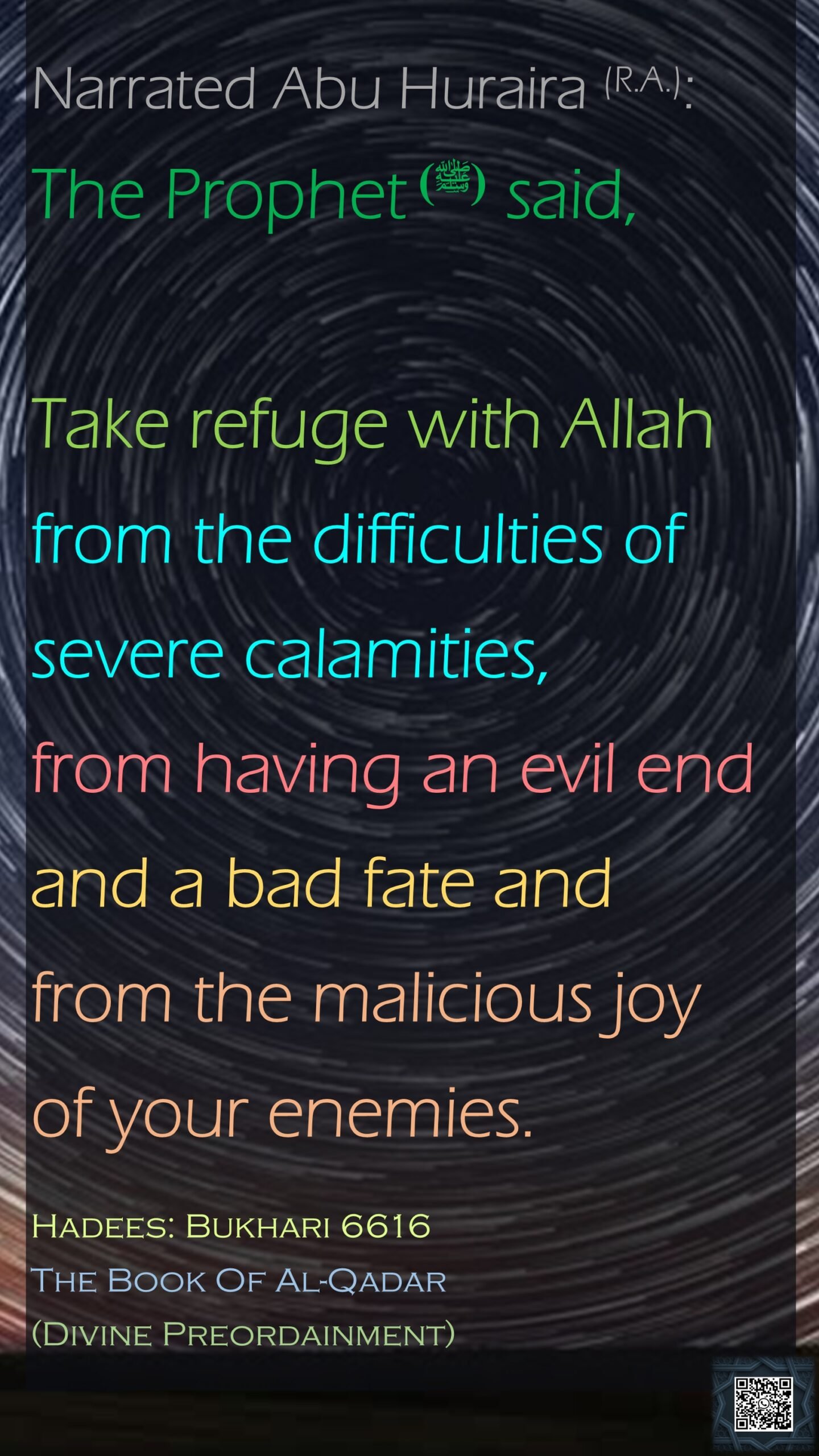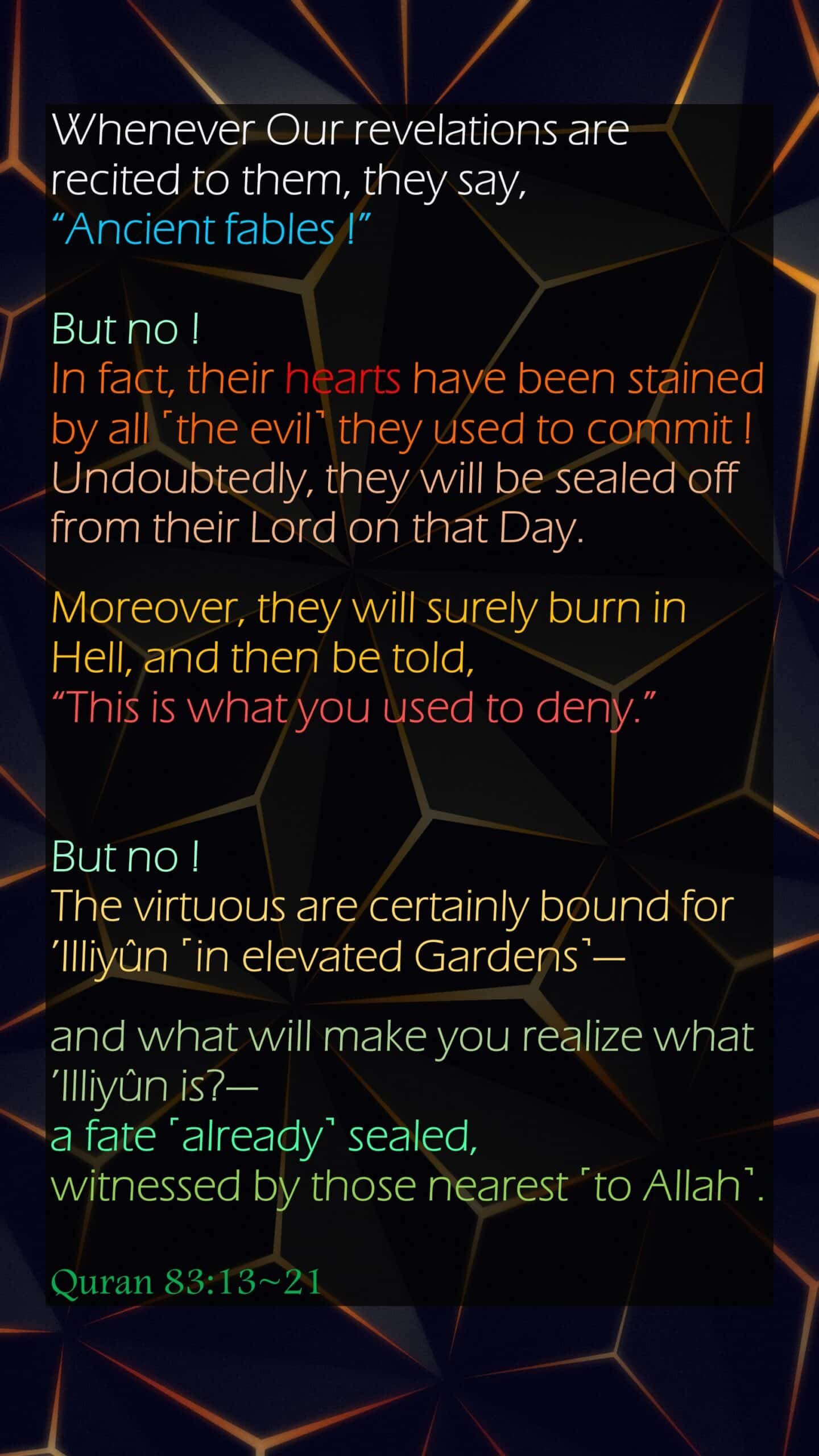1
Oct, 2024
Quran 83:1~9
Islam, Quran 083, 1 to 9, al-Mutaffifin, Allah, ayat, daily, day, defraud, depth, depths f Hell, fate, fraud, full, hell, inspirations, islam, islamic, less, Lord of the Worlds, measure, Muhammad, quran, realize, seal, sell, Sijjin, Surah, the Defrauders, tremendous, woe, woe to defrauders
8
Jul, 2023
Quran 44:22~31
Islam, Quran Allah, army, Award, ayat, children of Bani Israel, cried, crop, delay, drown, earth, fate, Firoun, Firun, garden, Hazrat, Heaven, inspirations, islam, islamic, luxury, Moses, Musa, Oharaoh, other, parted, pursue, quran, residence, sea, servant, splendid, spring, Surah, torment, trangress, tyrant, wicked
24
Apr, 2023
Quran 27:65~69
Islam, Quran 66, 67, 68, 69, alive, Allah, ancient, ayat, blind, Chapter 27, daily, day, disbelieve, doubt, dust, earth, fables, fate, forfathers, heavens, hour, ignorance, inspirations, islam, islamic, judgement, knowledge, ponder, quran, recraetion, resurrection, see, Surah, travel, unseen
10
Apr, 2023
Quran 83:13~21
Islam, Quran Allah, ancient, ayat, Bliss, burn, Chapter 83, commit, daily, day, dear, deeds, deny, elevated, fables, fate, Gardens, hearts, hell, illiyun, inspirations, islam, islamic, judgement, Near, quran, revelations, sealed, sealed off, stained, Surah, verses 13 to 21, virtous, witness, سورة المطفّفِین
9
Apr, 2023










